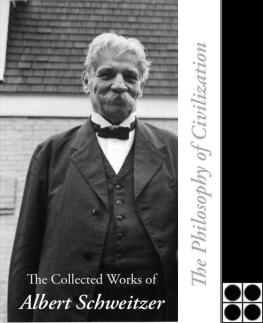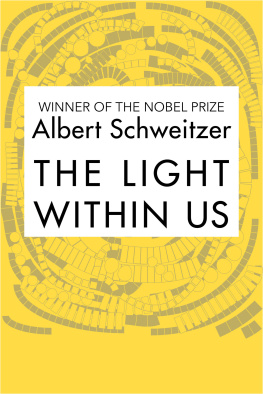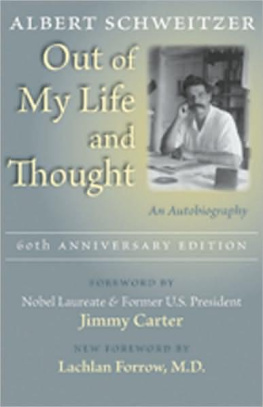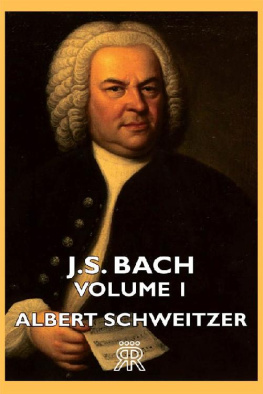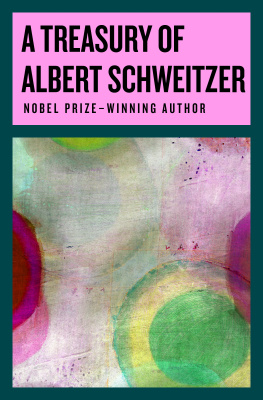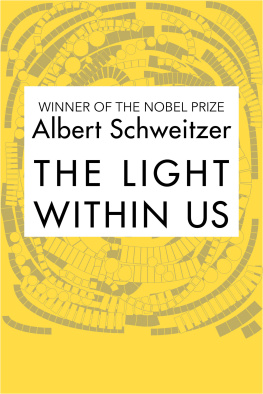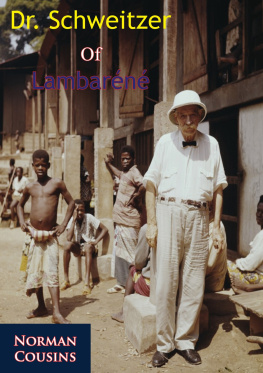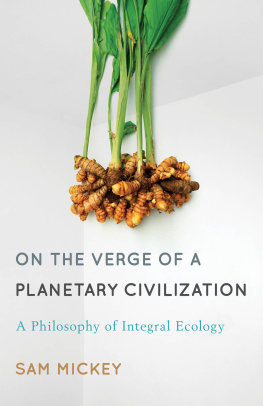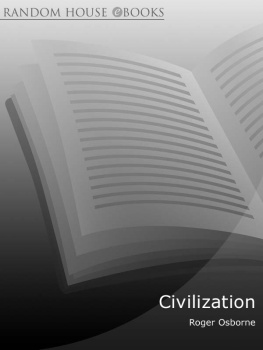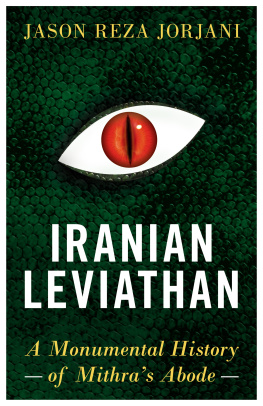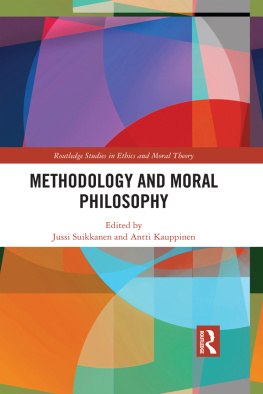
THE PHILOSOPHY OF CIVILIZATION
BY
ALBERT SCHWEITZER
D. THEOL., D. PHIL., D. MED.
PART I The Decay and the Restoration of Civilization
PART II Civilization and Ethics
TRANSLATED BY C. T. CAMPION

ALL RIGHTS RESERVED
Published in cooperation with the Albert Schweitzer Fellowship.
330 Brookline Avenue
Boston, MA 02215
www.schweitzerfellowship.org
Copyright 1987, 2009 Rhena Schweitzer Miller
No part of this book may be used or reproduced in any manner whatsoever without written permission except in the case of brief quotations embodied in critical articles and reviews.
[Library of Congress Cataloging-in-Publication Data] Schweitzer, Albert, 1875 - 1965. The philosophy of civilization. Translation of Kulturphilosophie 1923. Originally published: London: A. & C. Black, 1923. Contents: The decay and the restoration of civilization - Civilization and ethics.
(eBook v2.0.0)
Contents
Part I
THE DECAY AND THE RESTORATION OF CIVILIZATION
TO
Annie Fischer
IN DEEPEST GRATITUDE
AUTHORS PREFACE TO THE FIRST ENGLISH EDITION
T HE Decay and the Restoration of Civilization is the first part of a complete philosophy of civilization with which I have been occupied since the year 1900.
The second part, entitled Civilization and Ethics, will appear immediately. The third is called The World-View [ Weltanschauung . See Translators note at the end of this preface.] of Reverence for Life. The fourth has to do with the civilized State.
That over which I have toiled since 1900 has been finally ripened in the stillness of the primeval forest of Equatorial Africa. There, during the years 1914-17, the clear and definite lines of this philosophy of civilization have been developed.
The first part, The Decay and the Restoration of Civilization, is a kind of introduction to the philosophy of civilization. It states the problem of civilization.
Entering on the question as to what is the real essential nature of civilization, I come to the pronouncement that this is ultimately ethical. I know that in thus stating the problem as a moral one I shall surprise and even disgust the spirit of our times, which is accustomed to move amidst sthetic, historical and material considerations. I imagine, however, that I am myself enough of an artist and also of an historian to be able to comprehend the sthetic and historical elements in civilization, and that, as a modern physician and surgeon, I am sufficiently modern to appreciate the glamour of the technical and material attainments of our age.
Notwithstanding this, I have come to the conviction that the sthetic and the historical elements, and the magnificent extension of our material knowledge and power, do not themselves form the essence of civilization, but that this depends on the mental disposition of the individuals and nations who exist in the world. All other things are merely accompanying circumstances of civilization, which have nothing to do with its real essence.
Creative, artistic, intellectual, and material attainments can only show their full and true effects when the continued existence and development of civilization have been secured by founding civilization itself on a mental disposition which is truly ethical. It is only in his struggle to become ethical that man comes to possess real value as a personality; it is only under the influence of ethical convictions that the various relations of human society are formed in such a way that individuals and people can develop in an ideal manner. If the ethical foundation is lacking, then civilization collapses, even when in other directions creative and intellectual forces of the strongest nature are at work.
This moral conception of civilization, which makes me almost a stranger amidst the intellectual life of my time, I express clearly and unhesitatingly, in order to arouse amongst my contemporaries reflection as to what civilization really is. We shall not succeed in re-establishing our civilization on an enduring basis until we rid ourselves completely of the superficial concept of civilization which now holds us in thrall, and give ourselves up again to the ethical view which obtained in the eighteenth century.
The second point which I desire should obtain currency is that of the connection between civilization and our theory of the universe. At the present time no regard is paid to this connection. In fact, the period in which we are living altogether misses the significance of having a theory of the universe. It is the common conviction nowadays, of educated and uneducated alike, that humanity will progress quite satisfactorily without any theory of the universe at all.
The real fact is that all human progress depends on progress in its theory of the universe, whilst, conversely, decadence is conditioned by a similar decadence in this theory. Our loss of real civilization is due to our lack of a theory of the universe.
Only as we again succeed in attaining a strong and worthy theory of the universe, and find in it strong and worthy convictions, shall we again become capable of producing a new civilization. It is this apparently abstract and paradoxical truth of which I proclaim myself the champion.
Civilization, put quite simply, consists in our giving ourselves, as human beings, to the effort to attain the perfecting of the human race and the actualization of progress of every sort in the circumstances of humanity and of the objective world. This mental attitude, however, involves a double predisposition: firstly, we must be prepared to act affirmatively toward the world and life; secondly, we must become ethical.
Only when we are able to attribute a real meaning to the world and to life shall we be able also to give ourselves to such action as will produce results of real value. As long as we look on our existence in the world as meaningless, there is no point whatever in desiring to effect anything in the world. We become workers for that universal spiritual and material progress which we call civilization only in so far as we affirm that the world and life possess some sort of meaning, or, which is the same thing, only in so far as we think optimistically.
Civilization originates when men become inspired by a strong and clear determination to attain progress, and consecrate themselves, as a result of this determination, to the service of life and of the world. It is only in ethics that we can find the driving force for such action, transcending, as it does, the limits of our own existence.
Nothing of real value in the world is ever accomplished without enthusiasm and self-sacrifice.
But it is impossible to convince men of the truth of world- and life-affirmation and of the real value of ethics by mere declamation. The affirmative and ethical mentality which characterizes these beliefs must originate in man himself as the result of an inner spiritual relation to the world. Only then will they accompany him as strong, clear, and constant convictions, and condition his every thought and action.
To put it in another way: World- and life-affirmation must be the products of thought about the world and life. Only as the majority of individuals attain to this result of thought and continue under its influence will a true and enduring civilization make progress in the world. Should the mental disposition toward world- and life-affirmation and toward ethics begin to wane, or become dim and obscured, we shall be incapable of working for true civilization, nay, more, we shall be unable even to form a correct concept of what such civilization ought to be.
Next page
